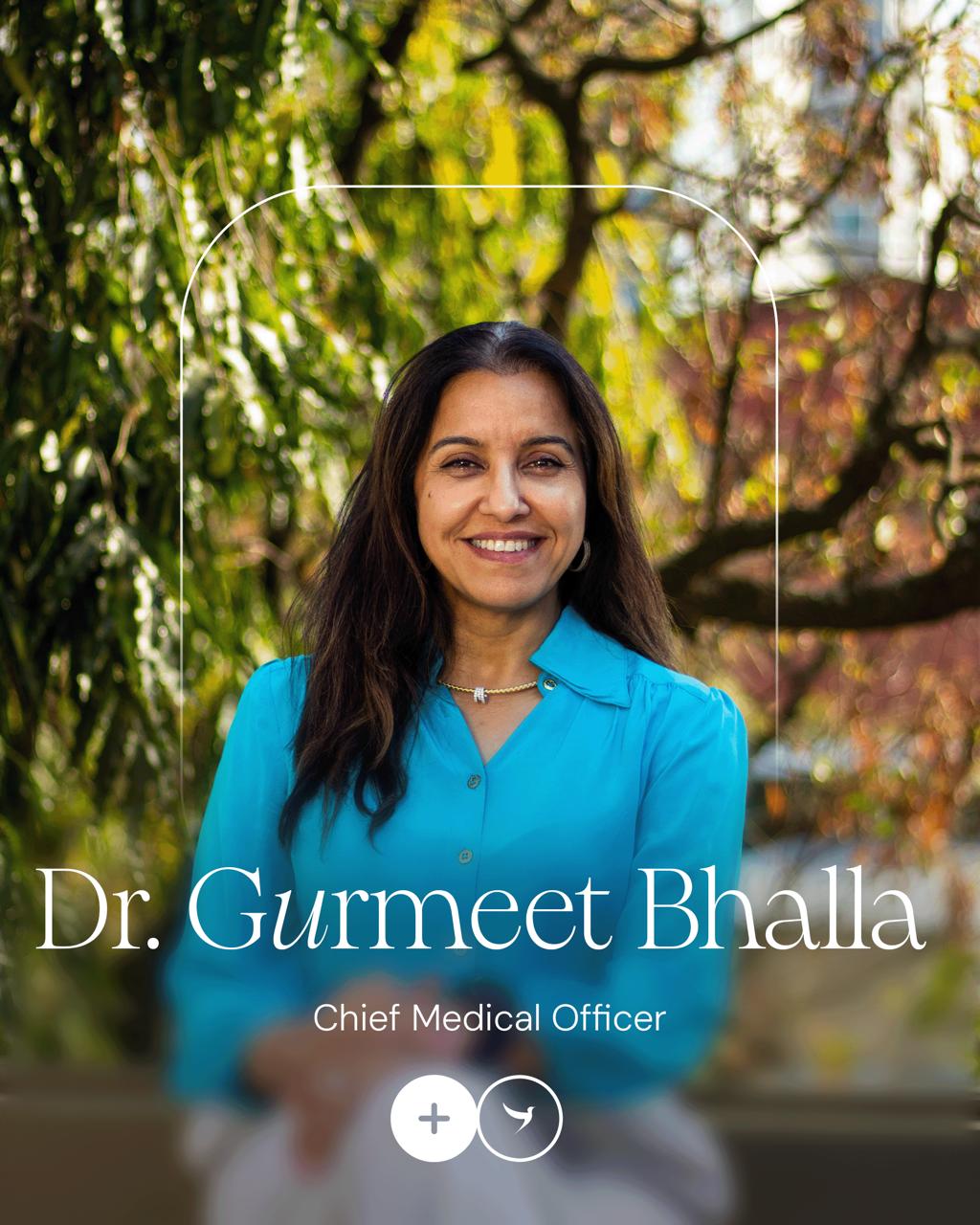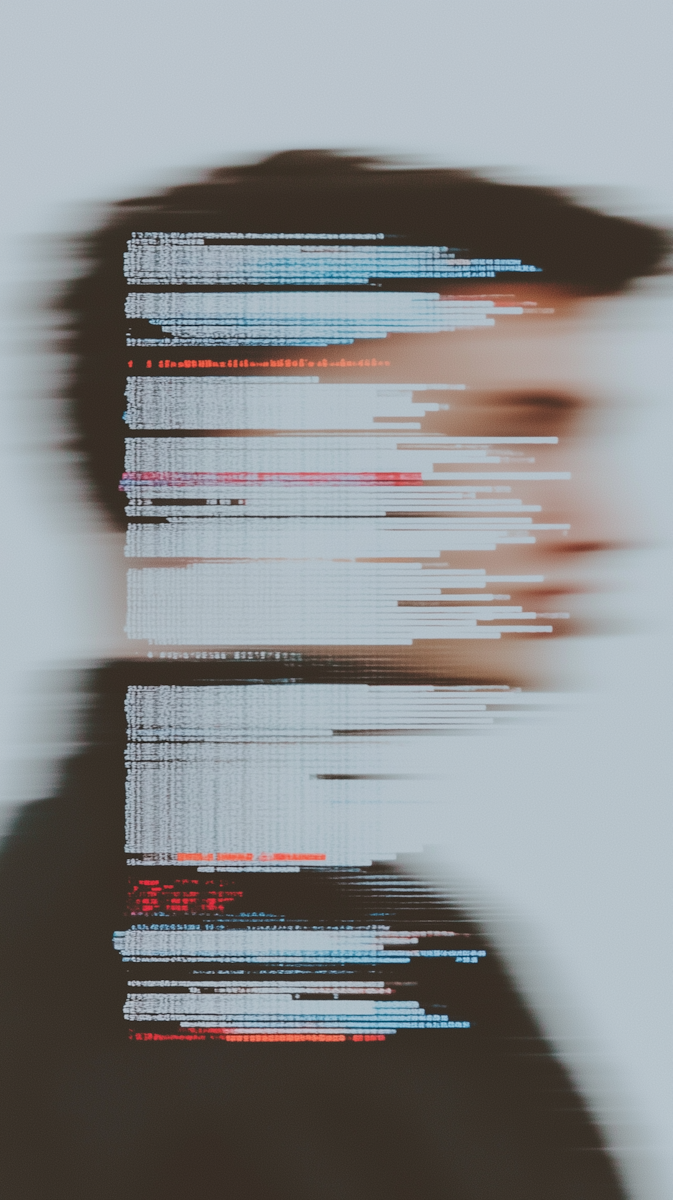A Note From Our Chief Medical Officer: AI Shouldn't Replace Health Expertise. It Should Augment It.
There's a compelling narrative taking hold: that AI has democratised medical knowledge, placing an all-knowing health assistant in everyone's pocket. Ask it anything — symptoms, supplements, test results — and receive instant, authoritative answers. No appointments needed. No waiting rooms. Just you and the algorithm.
It's an appealing vision. It's also dangerously incomplete.
The Illusion of the AI Oracle
The promise of AI as a personal Health Oracle rests on a fundamental misunderstanding of what these systems actually do. Large language models (like chatGPT, Gemini, Deepseek) excel at pattern matching and information retrieval. They can surface relevant studies, explain complex terminology, and generate plausible-sounding advice with remarkable fluency.
But fluency isn't accuracy. Confidence isn't competence.
Without proper guardrails, AI systems "hallucinate": inventing citations that don't exist, recommending supplements that interact dangerously with common medications, confusing clinical "normal" ranges with optimal health markers. They lack the contextual judgment to know when a borderline result demands immediate attention versus watchful waiting. They can't weigh competing health priorities or navigate the messy reality of individual patient circumstances.
Perhaps most critically, they carry no accountability. When AI provides harmful advice, there's no licensing board to answer to, no malpractice framework, no professional obligation to the patient's wellbeing.
The Impossible Dilemma
So we abandon AI entirely and return to traditional healthcare models? That's equally untenable.
The old way — where comprehensive health optimisation requires teams of specialists, countless hours of expert time, and costs that restrict access to the wealthy — doesn't scale. Most people can't afford to have on-call personal physicians, nutritionists, and pharmacologists reviewing their bloodwork for optimisation opportunities. They get annual checkups designed to flag disease, not enhance performance.
Meanwhile, the complexity of modern health data has exploded. Wearables generate continuous metrics. Advanced blood panels measure hundreds of biomarkers. Food tracking apps log every meal and macronutrient. The volume of information overwhelms traditional analysis methods; even expert clinicians struggle to synthesise it all within standard appointment windows.
We can't go back to resource-intensive manual analysis. We can't go forward with unsupervised AI. The dilemma appears impossible.
The Third Way: Augmented Expertise
Unless we reframe the question entirely.
What if AI's role was never to replace clinical judgment, but to amplify it? What if we designed systems where computational power handled what machines do best, rapid pattern recognition across massive datasets, while human expertise focused on what only humans can do: nuanced judgment, ethical reasoning, and personalised clinical decision-making?
This is augmented expertise: AI as analytical engine, clinicians as clinical compass.
The distinction matters enormously. Replacement assumes AI can perform the complete function of health experts. Augmentation recognises that both bring complementary strengths to patient care, and that combining them creates capabilities neither possesses alone.
What AI Actually Enables
When properly deployed, AI transforms the economics and logistics of expert healthcare without compromising quality.
Consider what happens when a health expert reviews a blood test manually: they scan dozens of values, compare them against reference ranges, recall relevant research, check for concerning patterns, and formulate recommendations. This takes time, often 20-30 minutes for thorough analysis of comprehensive panels. Multiply that across hundreds of patients and the constraint becomes obvious: expert time is finite, demand is infinite.
AI doesn't replace this judgment. It accelerates the groundwork. It can cross-reference biomarkers against millions of research data points in seconds, flag potential drug-nutrient interactions, identify subtle patterns across multiple systems, and generate preliminary interpretations, all before the clinician ever looks at the report.
This doesn't diminish the expert's role. It repurposes it.
Instead of spending cognitive energy on computational tasks — calculating ratios, looking up reference ranges, searching literature databases — the expert focuses entirely on what matters most: clinical judgment, safety verification, and personalised refinement based on the patient's complete health context.
Scaling Expertise Without Sacrificing Quality
This restructuring unlocks something profound: the capacity for experts to serve more people without degrading care quality.
When AI handles data synthesis and preliminary analysis, a physician who could previously review 10 comprehensive health assessments per day might handle 50; not by working faster or cutting corners, but by eliminating redundant cognitive labor. The expert still provides the same depth of judgment on each case. They're simply freed from the computational bottlenecks that previously constrained their capacity.
This is what we're exploring with Supplement Clinic: what becomes possible when expert judgment scales through AI, when computational analysis bends toward clinical wisdom, when precision and humanity work in concert rather than competition.
The model is straightforward: AI reviews blood biomarkers against evidence databases, our health coaches ensure lifestyle alignment, our pharmacologists verify dosing and interactions, our physicians provide final medical oversight. Neither component works well alone. Both are essential.
But the implications extend far beyond supplement recommendations.
The Feedback Loop: Mutual Learning
Perhaps the most overlooked benefit of human-AI collaboration: both parties improve through the partnership.
When clinicians review AI-generated analyses, they provide feedback that sharpens future recommendations. When AI surfaces patterns that clinical intuition might miss, experts expand their diagnostic awareness. The system learns from expert corrections. Experts learn from computational pattern recognition.
This creates a virtuous cycle: AI becomes more clinically sophisticated through exposure to expert judgment, while clinicians develop enhanced pattern recognition through AI-assisted analysis. Neither remains static. Both evolve.
Critically, this feedback loop creates conditions for sustained human potential extension. As AI handles increasingly sophisticated preliminary analysis, expert judgment moves upstream toward higher-order clinical reasoning: weighing competing priorities, navigating ethical complexity, adapting protocols to individual circumstances.
The goal at the end of the day is to ensure that expertise operates at its highest and best use.
The Trust Equation
Here's what patients actually want: confidence that someone competent is making decisions about their health.
AI alone can't provide that. No matter how sophisticated the algorithm, most people instinctively recognise that health optimisation requires human judgment: someone who understands context, weighs trade-offs, and takes responsibility for recommendations.
But pure human analysis, constrained by time and cognitive limitations, introduces its own uncertainties. Did the expert catch every relevant interaction? Did they consider the latest research? Did fatigue or cognitive bias influence their assessment?
The combination addresses both concerns. Human oversight provides accountability, ethical reasoning, and nuanced judgment. AI provides comprehensive analysis, tireless vigilance, and freedom from cognitive fatigue.
When there's a human in the loop, there's trust. When AI assists them, there's precision behind that trust.
This is how we reduce the margin of error in clinical judgment: by ensuring their decisions rest on the most comprehensive, accurate analysis possible.
Democratising Expert-Level Care
The ultimate promise of augmented expertise: making personalised health optimisation accessible rather than exclusive.
For decades, truly personalised health planning required resources most people couldn't access: comprehensive testing, multiple specialist consultations, ongoing monitoring and adjustment. The fortunate few with resources received expert-guided optimisation. Everyone else got generic advice and annual health checkups.
AI changes this equation fundamentally. When expert judgment can scale through computational assistance, when preliminary analysis requires seconds instead of hours, when ongoing monitoring becomes automated rather than manual, suddenly the economics of personalised care shift dramatically.
Complex systems biology analysis, once limited to academic medical centers and concierge practices, becomes widely accessible. Expert oversight, previously rationed by time constraints, can extend to far more people without quality degradation.
This is the genuine democratisation potential of AI in healthcare: enabling expert competence to reach everyone who needs it.
Building the Right Tools
The question facing healthcare isn't whether AI will transform medical practice: it already is. The question is what kind of transformation we'll build.
We can design systems that attempt to automate clinical judgment, removing human expertise from the loop in pursuit of efficiency. Or we can design systems that preserve what matters most: the irreplaceable value of human judgment, ethical reasoning, and individualised care, while expanding the reach and precision of that expertise through computational assistance.
The choice matters. Because when it comes to health, what we need aren't tools that replace human expertise. We need tools that help experts reach more people, make better decisions, and spend their limited time on what only humans can do.
Technology should expand our capacity to heal, not replace our commitment to it.
Dr. Gurmeet Soni Bhalla is Chief Medical Officer at Resolute, where she applies her expertise in preventive medicine and performance optimisation to help people unlock their full potential. When she's not leading our clinical team, she's running marathons across all seven continents, and most recently, the North Pole.






